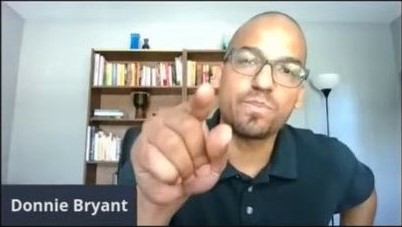We watch a lot of Christmas movies at my house. A lot, like the DVR is 78% full just from Christmas movies.
Most of the time I’m too much of a tough guy (in my own mind) to admit that I like them, but it’s one of the ways my wife and I spend quality time together during the holidays.
Something interesting happened while we were working our way through hours of these movies this year. Some prominent themes jumped out at me as particularly helpful in terms of marketing and business growth. As you’re thinking about resolutions and goals for the new year, these ideas could very well impact how you move forward in 2014. Even if you’re too tough to watch Christmas movies.
1) If It Ain’t Broke…
How many versions of Dickens’ A Christmas Carol have been turned into movies (not to mention plays and books)? Dozens.
How many spoofs of the “I wish I’d never been born” motif from It’s a Wonderful Life have you seen?
And I don’t think I can stand to see even one more fake holiday relationship that ends in a marriage proposal on Christmas Eve, followed by the falling of winter’s first snowflakes.
These films are produced year after year after year. And we keep watching them.
One thing that becomes eminently clear as you pay attention what Hollywood is cranking out is that when something works, keep doing it. Too often, entrepreneurs and marketers feel the need to be original and creative. There’s nothing wrong with that desire, but why reinvent the proverbial wheel? The legendary David Ogilvy noted that most marketers “worship at the altar of creativity, which really means originality — the most dangerous word in the lexicon of advertising.” When you have a message that keeps generating the results you want, don’t throw it away until you find something even better. If a marketing channel is producing high return on investment, don’t abandon it to chase after the hot new fad. Always feel free to test, but don’t give up on anything that hasn’t stopped delivering.
Remember, business owners often get bored with their own marketing before their audience does.
Also, consider taking inspiration from what is working for other successful people and businesses. Modeling is one of the fastest ways to create effective systems, products, services and messages. Sometimes taking a shortcut is the smartest thing you can do.
“Those who do not want to imitate anything, produce nothing.” ~ Salvador Dali
2) Envision The Alternative
I can’t tell you how many Christmas films I watched over the past month used the aforementioned motif from It’s A Wonderful Life (or the more recent Family Man). The protagonist has some sort of character flaw or they’re about to make a bad decision when they’re magically transported to an parallel dimension where they’re married instead of single, middle class instead of wealthy, etc. They’re “blessed” with the opportunity to see things how they should/could/would be if they did things differently.
This is precisely the purpose of your marketing. You need to create a vision in the mind of your prospect, showing him how much better his life will be when he starts using your product…how much he’ll miss out on if he will be if he procrastinates…the danger he puts himself in if he trusts the “low cost provider.”
Don’t hand out brochures or send emails or make webpages that simply state cold facts about your business, product, service or founder. Tell stories that paint a picture of the better future that comes along with what you have to offer. Answer the question “what’s in it for me?” thoroughly and vividly, from the perspective of the would-be customer.
“We did this” and “we have that” and “BUY NOW” probably won’t get the job done, especially if you haven’t already established a solid base of happy customers.
3) Don’t Buck Tradition
Christmas has more tradition associated with it than most other holidays, and many of the people who uphold them are borderline fanatical about keeping them. In several of the movies I’ve seen recently, commitment to these traditions often drive the plot forward and add structure, silliness or some other significant element to the story.
Roman poet Ovid noted thousands of years ago that “Nothing is stronger than habit.” Traditions are probably a close second.
Pay attention to your customers’ traditions and habits.
Attach yourself and your products to their currently-existing traditions; take a cue from Maxwell House’s Haggadah.
Make it easy to form a habit of buying from you.
4) It’s More Blessed to Give than to Receive
When you were a child, the holidays, including your birthday, were all about the presents you were about to get. In adulthood, most of us (especially parents) find that giving is much more satisfying than receiving ever was.
This concept doesn’t always translate easily into the business realm. We operate our businesses to gain a profit. That’s not just the way it is, it’s the way it should be.
But we should not base our decisions primarily on how we can extract the most money from the people we do business with. Rather, we should commit to giving as much value as possible to the other party. Then we set our prices accordingly. Always give more than you plan to get.
On Christmas day, a terrific story about giving was posted online. You really should listen to The Big Give, a 15-minute story by Jim Signorelli. A lot of things come into perspective as you listen to Jim describe one particularly memorable Christmas.

